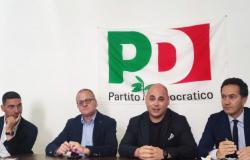PETER RUSSELL
“THE LAST OF THE GREAT MODERNS”
THE MAN, THE POET
MEMORY AND CRITICAL NOTE BY MARIA TERESA LIUZZO
My first encounter with the poetry of Peter Russell dates back to 1993. I don’t remember exactly who gave me a poetic text by the great English poet, Theories and Other Lyrics, published in 1990. As fond as I was of readings by authors, mostly Italian and, above all, representatives of that minimalism, in which it seemed Italian poetry was entangled in that period, which however was still affected by all the experimental experiences that had passed through it, leaving in addition to some signs of renewal, undoubted damage. (I would later read other poetic texts by Peter Russell, such as Poesie dal Valdarno, Albae Meditatio; The dried up source, Sonnets and others).
Returning to the text mentioned above, it struck me because it went well beyond the limits of common observation and the asphyxiated and limited poetics, characteristic of many, but it disseminated the history of humanity and the planet in an unlimited sphere, it recovered the heartbeats of very distant galaxies, immemorial and remote times, he magically linked them to the contemporary, just as, while wandering through this unlimited universe, he turned his eye to contemporary history, from the social to the political sphere: a breadth, in short, completely unusual, for my knowledge , regarding contemporary poetry. And then the stylistic and formal characteristics, from the epic tone, to the lyrical, to the moderate or scathing ironic: stigmata that I would variously find in subsequent works. My task, in the present circumstance, is not to engage in critical analysis or commentary on the poetic work, but to trace a human profile and a physical description of Russell, albeit in a few strokes and according to the impression that this figure of a poet and a man, aroused in me, both in relation to the mutual epistolary correspondence, full of his observations on poetry and art in general, and in relation to the fact of having known him personally and having had him as my guest for a few days.
At the beginning of 1995, having learned that the poet lived in Pian Di Sco, in the province of Arezzo, I sent him a poetic collection of mine, requesting a kind comment: the anthology was evidently to his liking (it was Apeiron, which I would have published subsequently) so much so that he declared himself available for its presentation, if I deemed it appropriate. I accepted, obviously with enthusiasm, the great poet’s offer and, at the same time, I sent him another unpublished anthology, Humanity, so that he could write the preface. Apeiron was presented to the city of Reggio Calabria in November 1995, in the “Francesco Cilea” Municipal Theater and, also due to the presence of the Poet (who in the meantime I had hosted at my house and would remain there for a few more days, after the presentation of the book ), had a notable impact and a large audience, in addition to positive critical reviews. It is superfluous to add that in the evening, without considering the value of the work presented, the figure of Russell imposed himself in all his power of suggestion, for his expressive naturalness, for that clarity and simplicity of language, which makes usable, at most, heterogeneous audience, profound concepts with hidden meanings. In fact, he exposed the work, treating it from different points of view, revealing its philosophical meanings, stylistic characteristics, clearing the different meanings of the poetics, with an exemplary clarity so that none of those present missed the meaning of the work. Here, that of illuminating simplicity was a dominant note of his way of speaking and writing: everything in his expression rejected complication, intellectual obsession, certain subtleties, which sometimes seem to accredit the acuteness and conceptual depth of those who speak or write but , which in effect are nothing more than quibbles that mask the modesty of thought. During my stay I was able to notice in this singular figure of a man, a poet, an intellectual, the exemplary modesty, the humility that is characteristic of great minds, his approach to arguments, both regarding humanity in general and contemporary world, history, literature and, in particular, poetry. While he spoke, I observed him carefully, I contemplated his, certainly how to say, original figure. He was tall and slender, almost thin, he sported thick, wavy, unruly hair, completely white, which was intertwined with his flowing beard; he dressed modestly and wore his trousers, small for his size, and above his ankles. The expression of his eyes was particular, which lit up with a vivid light or thickened with dark chrome, but were always lively, rendering the dynamics of thought at their best. His linguistic expression was extremely correct, precious, detailed, as is not given even to those who express themselves in their natural language. I learned various details of his life: his studies, his encounter with poetry, his stay in the United States of America, and his wanderings around the world, his participation in the Second World War, his arrival in Italy, his transfer to Pian di Sco, chosen as her stable domicile, as well as stable residence in Italy, chosen as her second homeland. He also revealed to me his relationship with Ezra Pound, his commitment to having him released from the nursing home, where the great American poet had been relegated and the very painful event of the fire in his (Russell’s) library, which occurred in 1990, with the loss of his own writings and precious documentation, as well as very rare books. He also mentioned to me some of his candidacies for the Nobel Prize, which perhaps (in my opinion) he would have deserved. We talked about the difficulties, natural for those who are far from their homeland, difficulties often of an economic nature (only a few months before his death, he became aware of the right to benefit from the Bacchelli Law, which he was unable to enjoy, having died on January 22nd). 2003 in the retirement home, in Castel Franco Sopra – Arezzo; but also with regard to the affirmation of his own poetic work, especially in a poet who made a convinced profession of the conservation and exaltation of the absolute values of humanity and art, almost religious. As already mentioned (and as I remember, he reiterated to me) he believed that beyond the dynamics and evolution of art and poetry, these could not be reduced to formal expressions, to often bizarre and imaginative research. new languages, but which should always and in any case be accompanied by style, solid and representative concepts of the fundamental and universal demands of man: it does not abjure, therefore, absolute values, with awareness obviously of the crisis of man and the variations relativistic, but, in any case and always, a tension towards the centrality of man, who is the factor and creator of poetry and art (without being reduced to a simple instrument): a poetry, in short, according to Russell, which without giving in to easy sentimentality, it must be informed by feelings, reflect on the spirituality of man in addition to physical issues; it must also reach the highest peaks of thought and understand the world in its entirety: in it history and tradition, myth and contemporaneity must be contained in a single sphere. I had previously mentioned the modesty and simplicity of the great poet: both when he spoke and when he wrote, he did so with extreme calmness, even if sometimes with liveliness and a slightly polemical verve, but to reiterate respect for fundamental principles. However, malice, contempt, refusal of confrontation, intolerance were absent: he simply believed, as his life and work had demonstrated, that art, like life, should exalt great principles, the great values (and this he had also expressed in the preface to my work, Humanity) and those absolutes, which too hastily and superficially, so much philosophy, so much literature, so much poetry had put into oblivion, perhaps for a more obvious or easier to pursue research.
Maria Teresa Liuzzo
I like:
I like Loading…







